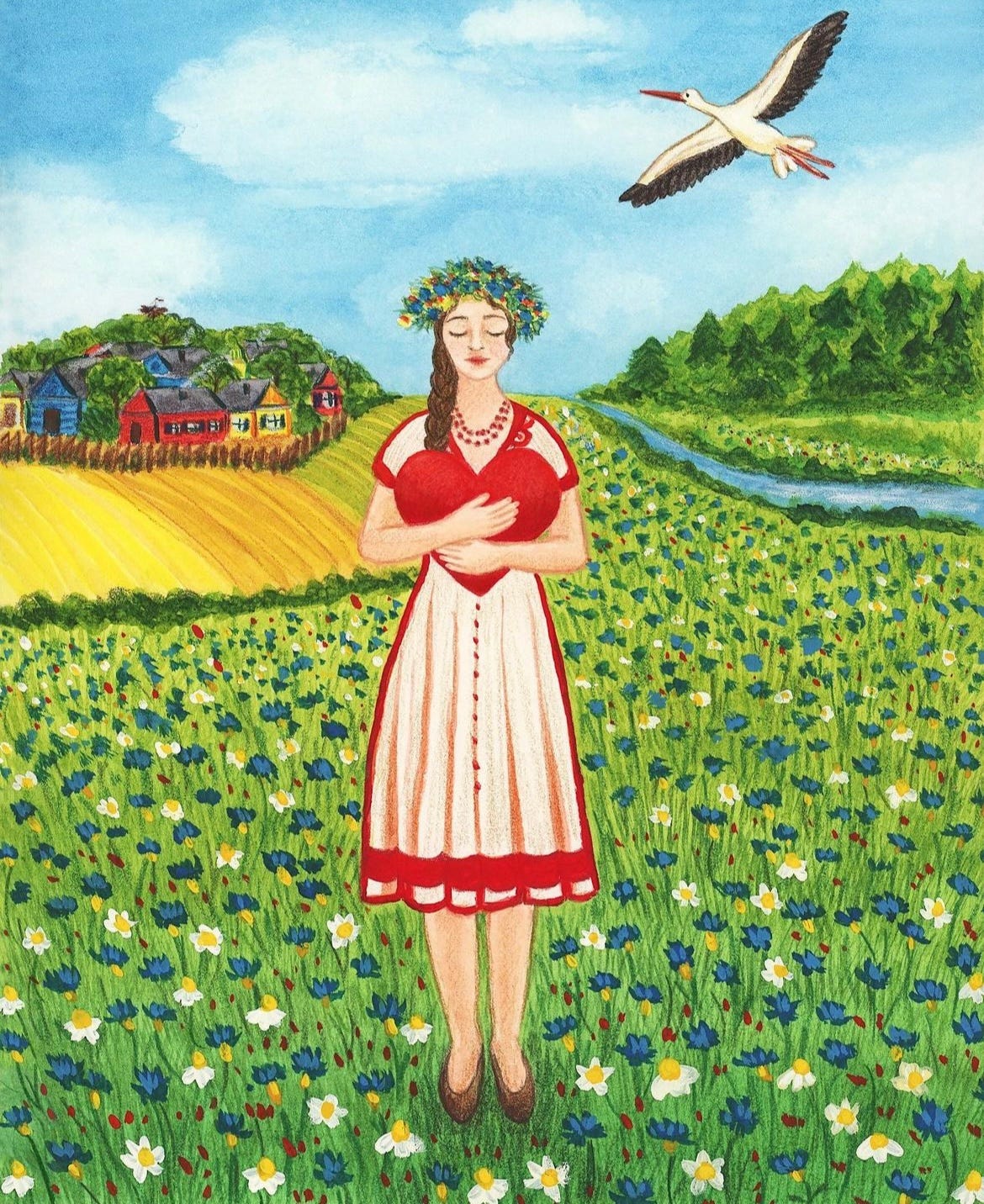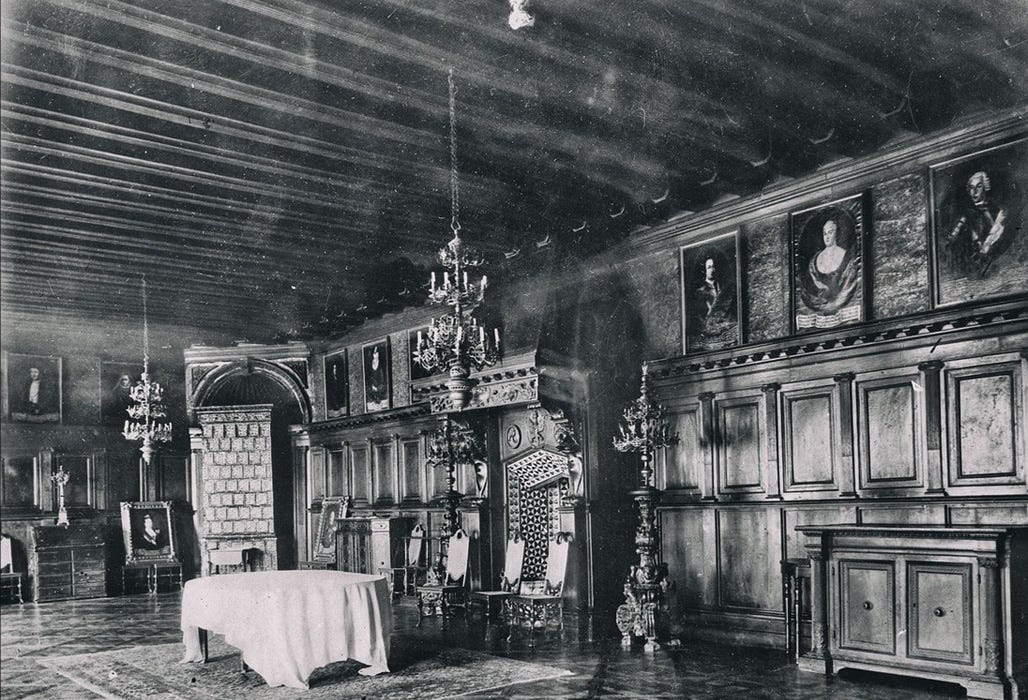The Radziwiłłs were a powerful magnate family that lived and ruled in the Grand Duchy of Lithuania and the Polish–Lithuanian Commonwealth. Modern Belarusian territory was a very important part of the Grand Duchy. The old Belarusian language, called Ruthenian, was widely spoken back then, and it was used for the state's official documents.
The Radziwiłłs owned a big territory that included two beautiful castles built in the 16th century: Mir Castle and Nesvizh Castle, which was the primary residence of the family. I always loved visiting the castles and learning more about the powerful family, who viewed themselves not only as Poles and Lithuanians, but also Belarusians. I was taught a Russified version of Belarusian history at school, but it never felt right that Belarusians were always peasants with no significant culture or history, unlike “great Russians.” That’s why I loved visiting the castles, as they were the evidence that contradicted those untruthful statements.
Not so long ago, I read a story about how Elżbieta Radziwiłł, the latest descendant of the Radziwiłłs who grew up in the Nesvizh castle, visited it after 58 years. I imagine how emotional the visit was – to be able to see your home after almost six decades. She was very upset, and her first words after looking at the castle were – “What have you, bolsheviks, done with it? You looted and destroyed everything.” The visit took place in 1993, a short period in Belarusian history when Belarus was truly free and independent and was trying to revive the Belarusian language and culture. The people who brought Elżbieta to the castle weren’t the ones who destroyed it, on the contrary, they wanted to rebuild it and bring it back to life. The ones who did the looting and destruction were the Soviet (Russian) authorities. Russians looted and destroyed the castle several times throughout history, starting from the 18th century. Nowadays, we can see the same colonizing behavior that Russians show in Ukraine: looting, stealing what they can, and destroying the rest.
This week, I talked to my sister and shared a story about Elżbieta Radziwiłł and how she visited her home after so many years. My 15 y.o. sister looked at me and said: “I think one day it will be us when we are able to visit Belarus. We will be old grannies, and we will look at our home and say that it’s not the same, that they destroyed everything, and it will make us very sad.” I felt a huge lump in my throat and answered that I hoped that we would be able to visit earlier, and if not, we had the whole world open to us right now. However, after the video call ended, I sat in silence for a while, thinking that it is not the type of conversation you expect to have with your little sister. It is just so wrong. We didn’t grow up in a castle, but our little home was the heart of our family, and we miss it a lot.
It’s been almost ten years since I left Belarus, but it feels like a century – so much has changed. I often receive messages from people who ask me why Belarusians don’t protest and won’t overthrow the dictatorship, why they passively participate in the war against Ukraine and do nothing to resist Russian influence. I usually answer that after the protests were violently crushed in 2020, almost all who had courage were either killed, detained, or fled. Those who stayed are scared to try again, at least for now. Some Belarusians fight against Russia in the Belarusian battalion in Ukraine, some volunteer, but the majority accepted defeat and think that the fire from the neighbor’s house won’t spread to them if they close their eyes and pretend that it’s not happening.
I see posts on social media where people write how there is no Belarus anymore but just a Russian puppet state. I see people using Belarus as a sad example of what happens to a country completely devoured by Russian colonialism: how there is almost no Belarusian culture or language left. While my head understands it’s mostly the truth, my heart can’t accept it, and I think it never will. I can’t save Belarus, I can’t influence people who live there, and I probably will never be able to come back. All I can do is preserve Belarusian culture and language in my family, share it with people, spread awareness about Russian colonialism, and do everything to save the neighbor’s house because otherwise, this fire will destroy everything I love.
I want to share a poem I wrote a few months ago. I can’t hold back the tears every time I read it.
Land of white storks Following white storks, looking at the sky. Picking up the pace, so they stay in sight. Storks flying home above forests and seas, without a compass or maps knowing where it is. I wish I could join the flock and become a stork. So I can fly home, but won’t get caught. I’ll be just a bird: no passport, no records, no name. We were born on the same land — but our freedom is not the same. I will fly to my home and visit all the places I love. I’ll sit on top of the poles and look at my town from above. I’ll land on the roof of my house and peek through the window glass. I’ll see my childhood room covered in a thick layer of dust. I’ll see tall shelves with books and a forgotten toy on the floor. The house is abandoned and empty. I left it a long time ago. I’ll fly above my school and the local shops on my street. I’ll see neighbors and classmates. No one will know that it’s me. Then I’ll fly to my grandma’s house and see her in the chair watching TV. She’ll turn her head, and suddenly, she will smile and wave at me. I’ll come to our countryside house and quietly sit on a tall pine. The weeds took over Mom’s garden, and the house’s entrance is covered with vines. Even though I love all these places, I understand that I don’t belong anymore. My little stork’s heart will fill with sadness as I realize: I’ve become a stranger in my own home. Storks know nothing about the dictatorship. Its laws and poison don’t work on them. People choose to live in prison. Storks choose to live free on their land. I think no one will recognize me if I return, not as a bird. Because even though I look human, inside, I’ve become a free stork.

Warmly,
Darya
Email: daryazorka@substack.com
Follow me on Instagram
Follow me on Twitter
Shop my art on Etsy
Watch the “20 Days in Mariupol” documentary
Watch Frontline PBS documentaries on Ukraine
Donate to help Ukraine: UKRAINE DONATION GUIDE 2024








Beautiful poem that sparks the imagination to make it slightly easier for me to imagine the unimaginable of what it must be like to have your country stolen from you by thugs. It's heartbreaking. I hope you get to visit it sooner rather than later and that the thugs get to visit the Hague permanently.
Belarus is never gone so long as you, and others like you, carry the memories, language, and culture forward.